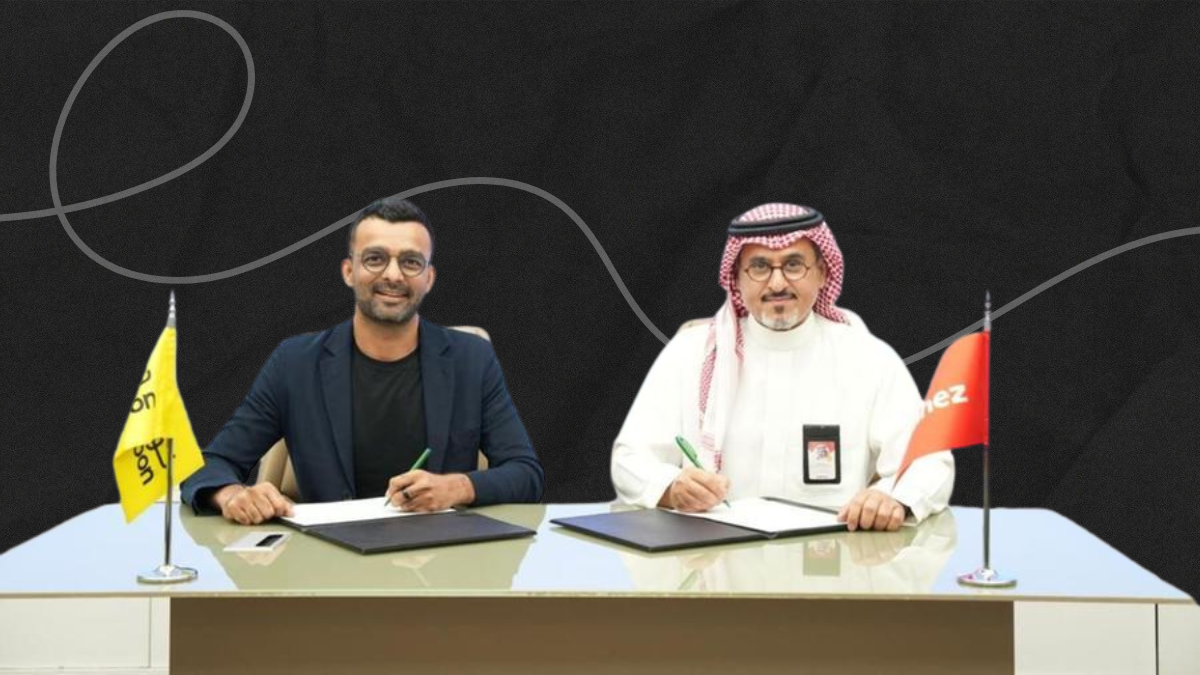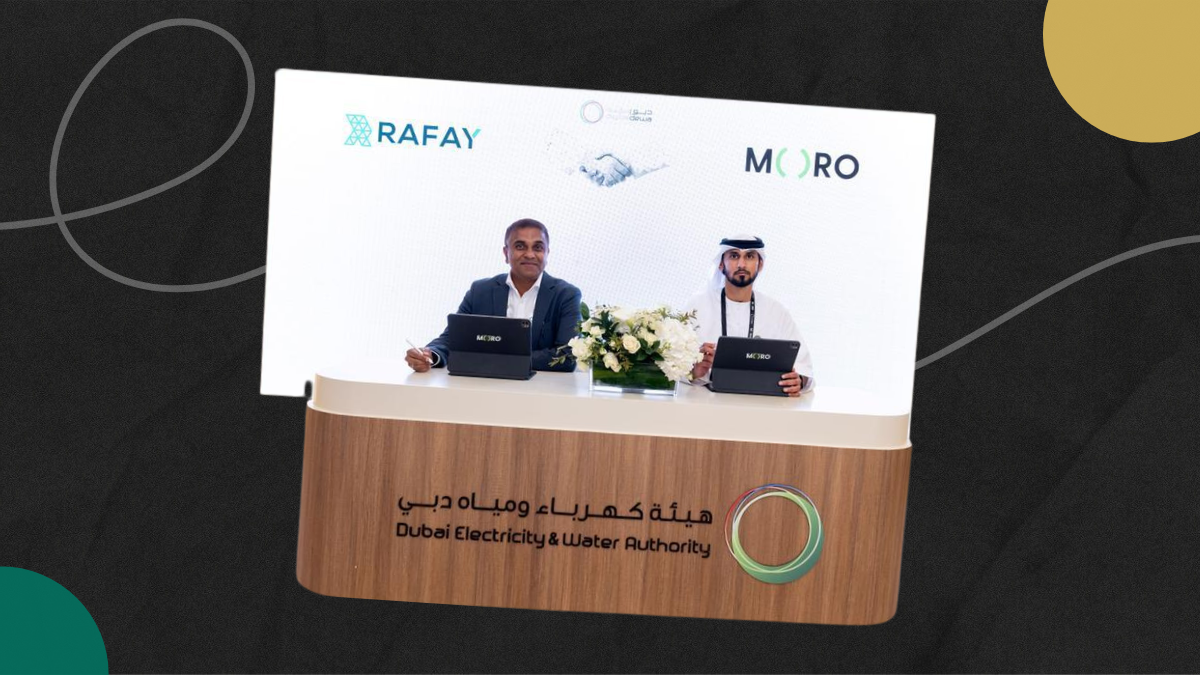I am Mohammed Reda. I built education ventures to fix gaps I lived

6 min
Why education became the throughline
When asked about the common thread across his ventures, Mohammed Reda is clear that it starts with a personal conviction rather than a market map. Education, for him, is not an abstract sector but a lived concern. He describes entrepreneurship as a way to build things that serve people, not as an identity badge.
That instinct first took form in 2016 with EduVision, founded as a social enterprise to develop education through services and convening power. The Creative Education Summit became its flagship, a platform that brought together educators, technologists, and institutions from the public and private sectors across the region and beyond. Alongside the summit, EduVision expanded into consulting, working with educational institutions on recruitment, training, and organisational development. The ambition was practical, build capacity where it was missing.
How technical education shaped a personal bet
On the question of why Maharty mattered so much, Reda traces it back to his own background. As a graduate of technical education, he had seen first-hand how vocational training was sidelined and under-resourced. In 2021, that frustration turned into a focused project.
Maharty was designed as a platform dedicated to vocational and technical training, paired with professional services for technicians and skilled workers. It was a long-held idea, realised with his partner Mohamed El-Baz and a committed team. Reda speaks about it less as a startup win and more as a correction, an attempt to give technical education the seriousness and infrastructure it deserves.
Building an events business without losing the point
When the conversation turns to Ntervento, Reda frames it as a response to scale rather than a departure from purpose. Founded in 2022 with partners Walid Saad and Nasser Fekry, the company focuses on world-class conference and exhibition management, serving governments and large organisations.
The shift was not about chasing glamour. It was about building integrated solutions and proving that international standards could be delivered locally. Today, Ntervento organises international conferences in Egypt and works with local and global partners. For Reda, events are a means to convene ideas, industries, and decisions, not just a logistical exercise.
Learning the hard parts the slow way
Pressed on the toughest challenges, Reda does not talk about competition or timing. He talks about people, money, and continuity. Early on, he tried to do too much himself, a pattern that led to burnout and capped growth.
Over time, he learned to attract the right talent and to manage with trust and clarity. Delegation became a discipline rather than a concession. Financial management followed a similar arc. Scarcity forced prioritisation, and mistakes taught him the value of partnerships and sustainability over short-term expansion. What carried him through, he says, was resilience and a belief that setbacks were part of the work.
Stepping back to move faster
Asked how he now divides his time, Reda describes a deliberate move away from day-to-day execution. His focus today sits with strategy, business development, and new projects, while partners and managers run operations.
This division is not about distance. It is about perspective. By concentrating on the bigger picture, he can identify opportunities, build partnerships, and keep the ventures aligned with a long-term vision. Trusting capable teams has also created space for others to grow, which he sees as essential to building organisations that last.
The events that still matter most
When asked to name a proudest moment, Reda resists ranking by size or profile. Every event, he says, demands full commitment. Still, the Creative Education Summit holds a special place as the first event he organised under EduVision. It proved the idea could work and that a credible regional platform was possible.
Another milestone was the Skills Competition for Technical Education, which connected directly to his personal story and advocacy for vocational training. What distinguishes these events, in his view, is not the stage or the speakers but the collaboration behind them. Success comes from teams working towards a shared vision and understanding that events are about stories and long-term impact.
The skills young people cannot ignore
On the question of employability, Reda is blunt about change. Artificial intelligence is no longer optional. Those who can use AI effectively will be more competitive across sectors. Yet he is equally clear that technical capability alone is insufficient.
Communication, problem-solving, and decision-making remain decisive. Employers want people who can analyse complexity, collaborate, and make informed choices under pressure. The advantage lies in combining AI literacy with human judgement and leadership, a balance that makes professionals harder to replace.
Anticipating change rather than reacting to it
When the discussion moves to future trends, Reda points to a lesson learned during the pandemic. His companies were among the first in Egypt to deliver fully online conference experiences, before the concept was widely accepted. That moment reinforced the value of acting early.
Today, the focus in education is on AI and data science, particularly for personalised learning and smart analytics. In events, the emphasis is on hybrid formats, real-time insights, and digital engagement. Reda’s approach is to study global models, then localise them so they actually work in the region. He sees this blend as a way to keep pace while shaping new standards.
Influences and quiet guidance
Asked to reflect on inspiration, Reda credits people before books. Ahmed Rabie, Ahmed Tohamy, and Hatem Salam offered guidance and support at formative stages. On a broader scale, the journeys of Mahmoud El-Araby and Ahmed El-Sewedy stand out as examples of building impact alongside business success.
These references underline a consistent theme. Progress is rarely solitary, and models matter when they demonstrate responsibility as well as growth.
Advice for entering the events industry
When asked what he would tell newcomers to event management, Reda advises breadth before specialisation. Working across different fields builds understanding and reveals where real value can be added.
Experimenting with various event types helps clarify strengths and interests. Only then, he argues, does specialisation make sense. The result is resilience, adaptability, and confidence grounded in experience rather than assumption.
What comes next
Looking ahead, Reda is most excited by technology-led platforms for conferences and exhibitions, designed to be smarter, more interactive, and easier to scale. Real-time analytics and seamless hybrid experiences are central to that vision.
In education, several AI and data-driven ideas are in development, aimed at personalising learning and supporting evidence-based decisions. Execution may come later, but the intent is clear. For Reda, the work remains the same at its core, connect global innovation with local needs, and build ventures that serve people before anything else.
 LEAP26
LEAP26 AI
AI Saudi Arabia
Saudi Arabia UAE
UAE Egypt
Egypt








